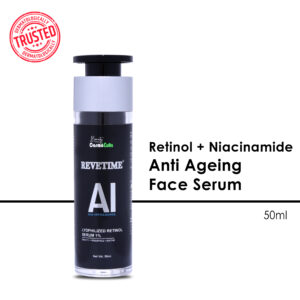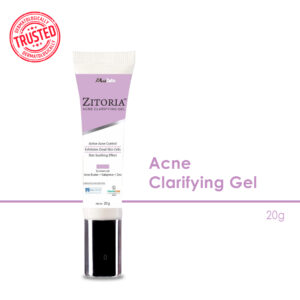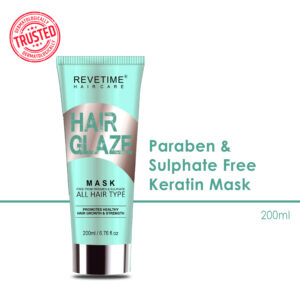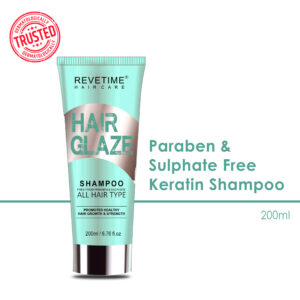-
- Out of StockSale!
Revetime | Vitamin C Face Serum | Anti-aging | Prevents Dark Spots | 15% Vitamin C | 1% Hyaluronic Acid | 30ml
-
₹1,500.00₹749.00 - Read more
-
Frequently Asked Question
- What is vitamin C and why is it used in skincare?
Vitamin C, also known as ascorbic acid, is a potent antioxidant that offers several benefits for the skin. It helps protect the skin against environmental damage, brightens the complexion, promotes collagen synthesis, and reduces the appearance of fine lines and wrinkles. - How does vitamin C work on the skin?
Vitamin C works by neutralizing free radicals, which are unstable molecules that damages the skin and accelerate aging. It also inhibits melanin production, helping to fade dark spots and even out skin tone. Additionally, vitamin C plays a key role in collagen synthesis, promoting skin firmness and elasticity. - Can vitamin C be used on all skin types?
Yes, vitamin C is generally suitable for all skin types. However, individuals with sensitive skin need to start with lower concentrations and gradually increase usage to assess tolerance. Patch testing is recommended for sensitive or reactive skin to ensure compatibility. - How should vitamin C be incorporated into a skincare routine?
Vitamin C is used in various forms, including serums, creams, and moisturizers. It is typically applied after cleansing and toning, but before moisturizing and applying sunscreen. Follow the instructions provided by the product manufacturer for best results and consider consulting a dermatologist for personalized recommendations. - Can vitamin C be used with other skincare ingredients?
Vitamin C can be used in combination with other skincare ingredients. However, certain combinations may cause skin sensitivity or reduce the efficacy of vitamin C. For example, vitamin C should not be used in conjunction with products containing niacinamide at high concentrations, as they may react and potentially cause flushing. It’s best to research ingredient compatibility or consult with a skincare professional to ensure a safe and effective regimen. - Can vitamin C cause skin irritation?
In some cases, vitamin C may cause skin irritation, especially for those with sensitive skin or when using high concentrations. It is advisable to start with lower concentrations and gradually increase usage to assess tolerance. If irritation occurs, discontinue use and consult a dermatologist. - Can vitamin C make the skin more sensitive to the sun?
Vitamin C itself does not typically make the skin more sensitive to the sun. However, it is important to note that any product targeting skin brightening or lightening increases the skin’s susceptibility to sun damage. It is crucial to use a broad-spectrum sunscreen with adequate sun protection (SPF) daily to protect the skin from harmful UV rays. - How long does it take to see results with vitamin C?
The time it takes to see results with vitamin C depends on factors such as the individual’s skin type, the specific product used, and the frequency of application. Consistent use of vitamin C over several weeks to months leads to noticeable improvements in skin brightness, texture, and overall radiance.











































